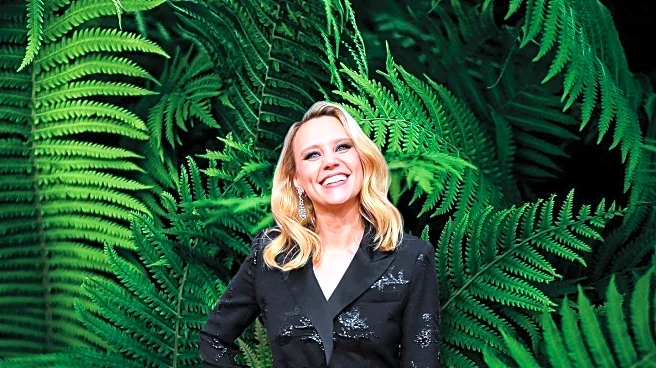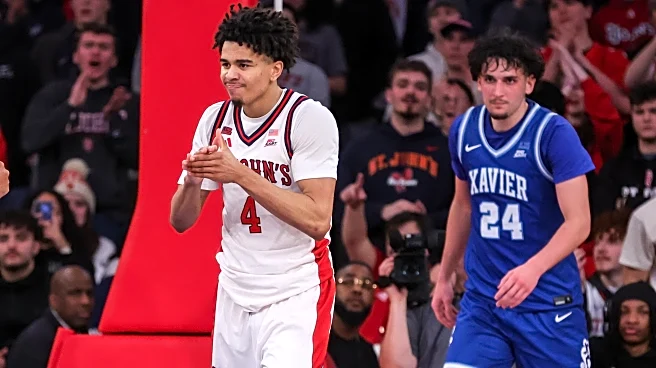What's Happening?
The article recounts an incident involving comedian Amy Poehler and Jimmy Fallon during their time at Saturday Night Live, as detailed in Tina Fey's memoir, Bossypants. Poehler made a joke that Fallon found inappropriate, prompting him to express his disapproval. Poehler's assertive response, 'I don’t care if you like it,' has been revisited in the context of Melani Sanders' viral 'We Do Not Care' videos. These videos, shared widely on social media, feature Sanders rejecting societal expectations of women, particularly those related to appearance and behavior. Sanders' videos resonate with many women, encouraging them to disregard traditional norms and embrace their individuality.
Why It's Important?
The incident and Sanders' videos underscore a broader cultural shift towards female empowerment and the rejection of patriarchal expectations. Poehler's response to Fallon exemplifies the growing movement among women to assert their independence and challenge societal norms. Sanders' videos have sparked widespread discussion, with many women expressing support and sharing their own experiences of liberation from societal pressures. This movement reflects a significant change in how women perceive their roles and identities, potentially influencing public discourse on gender equality and women's rights.
What's Next?
The 'We Do Not Care' movement is likely to continue gaining traction, encouraging more women to voice their discontent with societal expectations. As discussions around gender norms and women's empowerment grow, there may be increased advocacy for policy changes that support gender equality. Additionally, the movement could inspire further cultural productions, such as films or books, that explore themes of female empowerment and independence.
Beyond the Headlines
The movement challenges deep-rooted cultural norms and highlights the ongoing struggle for gender equality. It raises questions about the impact of societal expectations on women's mental health and self-esteem. The movement also intersects with discussions on ageism, as Sanders specifically addresses issues faced by perimenopausal and menopausal women, suggesting a broader conversation about the visibility and representation of older women in society.










